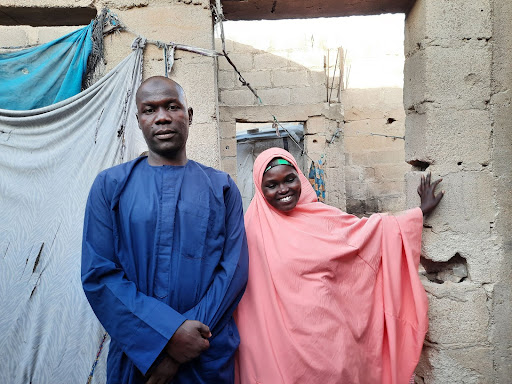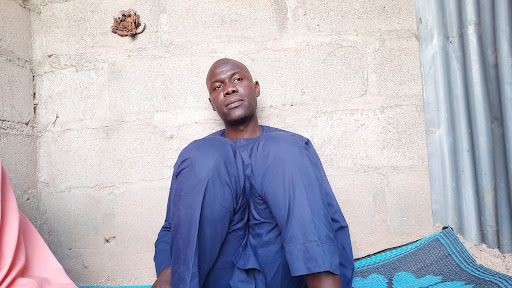Knifar Women’s Husbands Regain Freedom From Borno Maximum-Security Prison
About 550 husbands of the advocacy group’s members, who were arbitrarily detained by the Nigerian Army on allegations of having affiliations with Boko Haram, were released between July and November.

A total of 550 men, confirmed to be husbands of members of the Knifar Movement, have been released by the Nigerian authorities.
The men had been arbitrarily arrested and detained between 2015 and 2016 by the Nigerian Army in Borno State, Northeast Nigeria, on allegations of being part of the terror group Boko Haram.
The latest batch of release took place on Nov. 12 from the Borno Maximum-Security Prison, where the former detainees had spent the past four to five years of their lives.
The men were mostly displaced people fleeing from villages such as Andara, Banki, and Boboshe, all in Borno State, which had come under heavy Boko Haram attacks in 2015.
“I was a trader dealing in the sale of sacks before Boko Haram attacked our village in Andara and we had to flee,” Baana Alhaji Ali, one of the just-released men, told HumAngle. He had fled to Cameroon, where the Cameroonian soldiers caught him and others, and turned them in to the Nigerian army, who then labelled them Boko Haram members.
Since their detention in 2015, their wives, who now are displaced and living in camps in the outskirts of Maiduguri, have been advocating for their release, through the Knifar Movement, a support and advocacy group made of women whose husbands have been arbitrarily detained in this manner for years.
The husband of the now late pioneer leader, Kellu Haruna, was among those released from the Maximum-Security Prison as well.

HumAngle has repeatedly reported the experiences of the Knifar women since Sept. 2020 as well as their appeal to the government to secure the release of their husbands.
One of the current leaders, Yakura Kumshe, whose husband Baana Alhaji Ali, was among the just released men, told HumAngle that at the time they formed the Knifar Movement, they had no idea whether their advocacy would yield anything.
“We did not have any hopes when we started. Because this sort of thing has never happened before, we have never seen it and we have never heard about it. We are the first set of people to ever experience it. If it had happened before, it would have enabled us to measure and predict outcomes, like ‘so-so’s husband was detained, but he was released after so-so time.’ But we were the first. So, we just kept advocating everywhere, taking our cries everywhere, and praying.”
While she’s ecstatic to have her husband finally free, she still has one nagging wish: that all the other “innocent men who are in detention be released too.”
“Our rights have been violated. Our men have been violated. We are asking that the rest of the men be released. Because even the actual Boko Haram members get pardoned and reintegrated back into society. So why shouldn’t our men who are innocent, be released? It is not just.”
“A lot of us in the Knifar movement, our husbands were among the newly released people. But there are also many other women whose husbands have not been released— uncountable, in fact. We are appealing to the government to release them too.”
The Nigerian Army had in July announced that it was releasing 1,009 detainees after it had cleared them of wrongdoing, emphasising that they are “not ex Boko Haram fighters.”
Shortly after, over 500 detainees at Giwa barracks, a notorious detention facility in Maiduguri, the Borno state capital, were released. Among these, roughly 100 were identified as husbands of the Knifar women.
Then, in November, about 600 detainees were released from the Borno Maximum-Security Prison, some of whom were transferred to the deradicalisation camp in Gombe State. Others were released directly to their families. From this batch, about 300 of those released directly and 150 of those transferred to the Gombe camp were identified as affiliated with the women advocacy group.
Those at the deradicalisation camp are expected to learn a trade or skill for six months under the Operation Safe Corridor (OSC) programme before they are released back into society. The programme is aimed at rehabilitating former Boko Haram members who surrender. However, former Maximum-Security Prison inmates told HumAngle that innocent men admitted to being part of the terrorist group because they were under the impression it would guarantee their freedom.
Support Our Journalism
There are millions of ordinary people affected by conflict in Africa whose stories are missing in the mainstream media. HumAngle is determined to tell those challenging and under-reported stories, hoping that the people impacted by these conflicts will find the safety and security they deserve.
To ensure that we continue to provide public service coverage, we have a small favour to ask you. We want you to be part of our journalistic endeavour by contributing a token to us.
Your donation will further promote a robust, free, and independent media.
Donate HereStay Closer To The Stories That Matter




